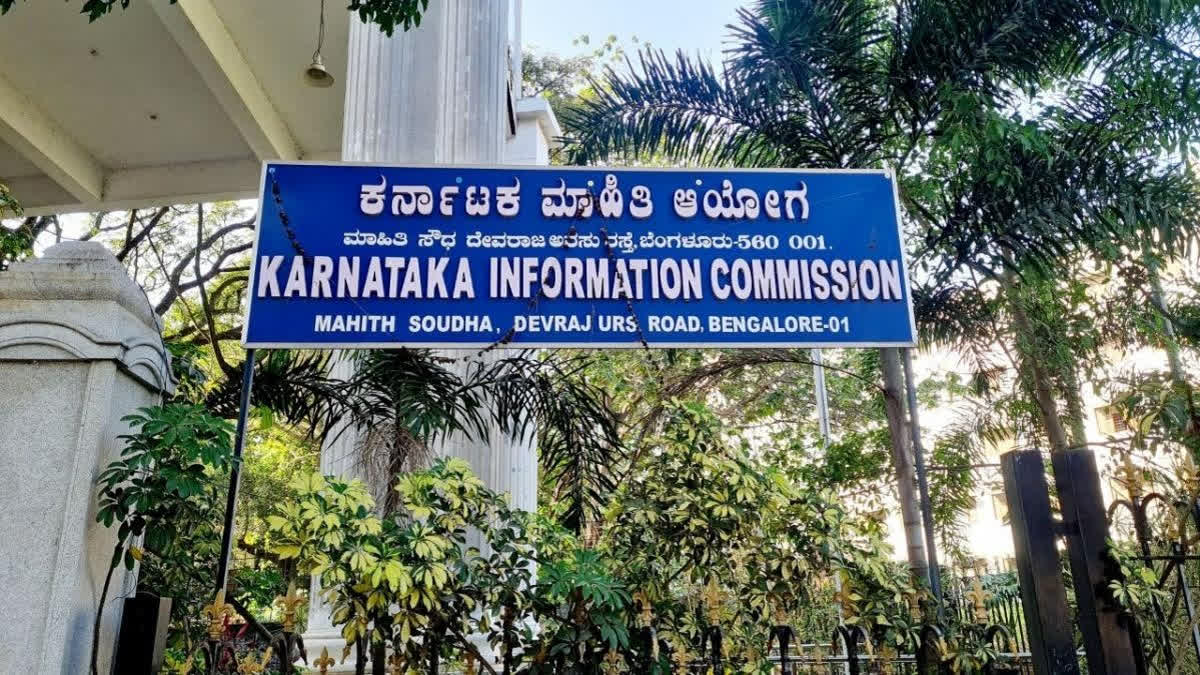By Mohammed Rafiq Mulla
Bengaluru: The Karnataka Information Commission is grappling with a severe shortage of Information Commissioners, with eight out of 10 positions vacant for over a year now. This has led to a huge pile-up of cases and significant delays in the resolution of appeals under the Right to Information (RTI) Act, affecting both transparency in public administration and citizen rights.
Currently, there are only two functioning Information Commissioners, S B Bommanahalli and Dr. H.C. Satyan at the Bengaluru bench. Satyan is also serving as the In-charge Chief Information Commissioner at the Bengaluru bench. The position of Chief Information Commissioner (CIC) has been vacant since the retirement of N.C. Srinivas since June 2024. Even the Belagavi bench has no Information Commissioner for nearly two years leading to a huge pile up of cases there.
Speaking to ETV Bharat, Karnataka Information Commission Under Secretary Gayatri revealed that in the Bengaluru bench alone over 55,000 cases have been pending for disposal as there are no Information Commissioners to hear these cases. On average, each Information Commissioner hears 30 appeals a day, she said.
Not that these positions are lying vacant for want of suitable candidates but due to the lack of intent on the part of the state government to make the Information Commission active, says an RTI activist.
There are about 184 people from various fields from retired bureaucrats to retired judges to journalists have applied for the positions of Chief Information Commissioner and Information Commissioners. The applicants include H R Mahadev, B R Mamatha, Richard Vincent D'Souza (retired IAS officers), Kamal Pant (former Bengaluru Police Commissioner), Sunil Agarwal, Ashit Mohan Prasad and S N Siddramappa (retired IPS officers). There are also several retired judges, bureaucrats and journalists among the applicants.
"This neglect of RTI violates citizens' rights and cripples the RTI system. Despite having so many eligible applications, the delay in appointment of Information Commissioners only makes us wonder if the government is deliberately trying to weaken transparency," says RTI Activist Meraj while condemning the Karnataka Government's attitude.
Another RTI Activist Vinod slammed the Karnataka Government’s inaction, stating, “The delay in filling Information Commission vacancies has paralysed the RTI system. This negligence undermines democracy and deprives citizens of their right to information," Vinod said.
Notably, the issue of delays in filling vacancies extends beyond Karnataka. In November 2024, the Supreme Court, while hearing a public interest litigation (PIL) filed by transparency advocate Anjali Bhardwaj, directed central and state governments to provide clear timelines for filling vacancies in information commissions. A bench of Justices Surya Kant and Ujjal Bhuyan noted the extensive backlog of cases across the country and instructed authorities to expedite the appointment process.
Advocate Prashant Bhushan, representing the petitioners in the Supreme Court, argued that “failing to fill vacancies is virtually destroying the RTI framework.”



